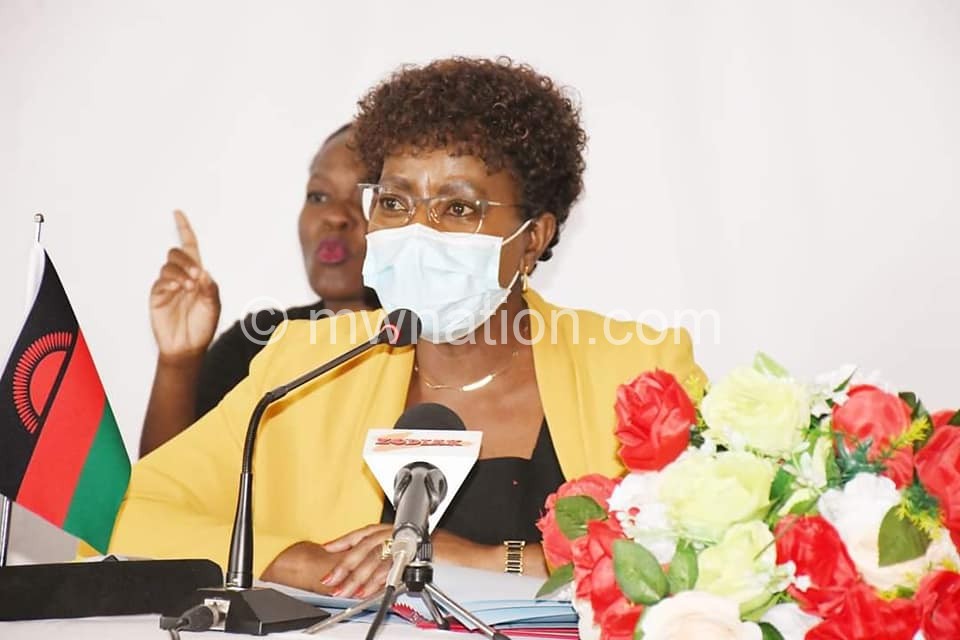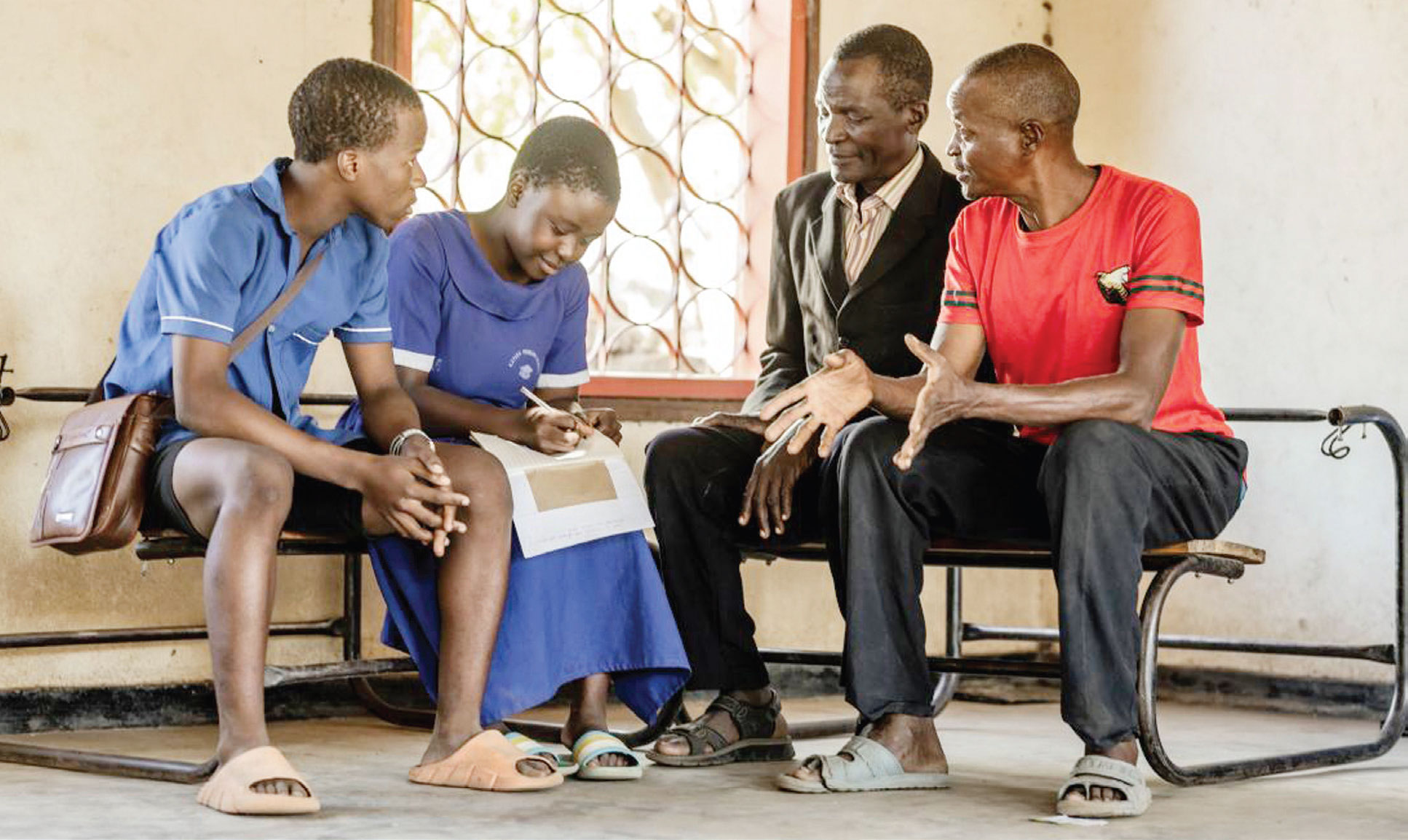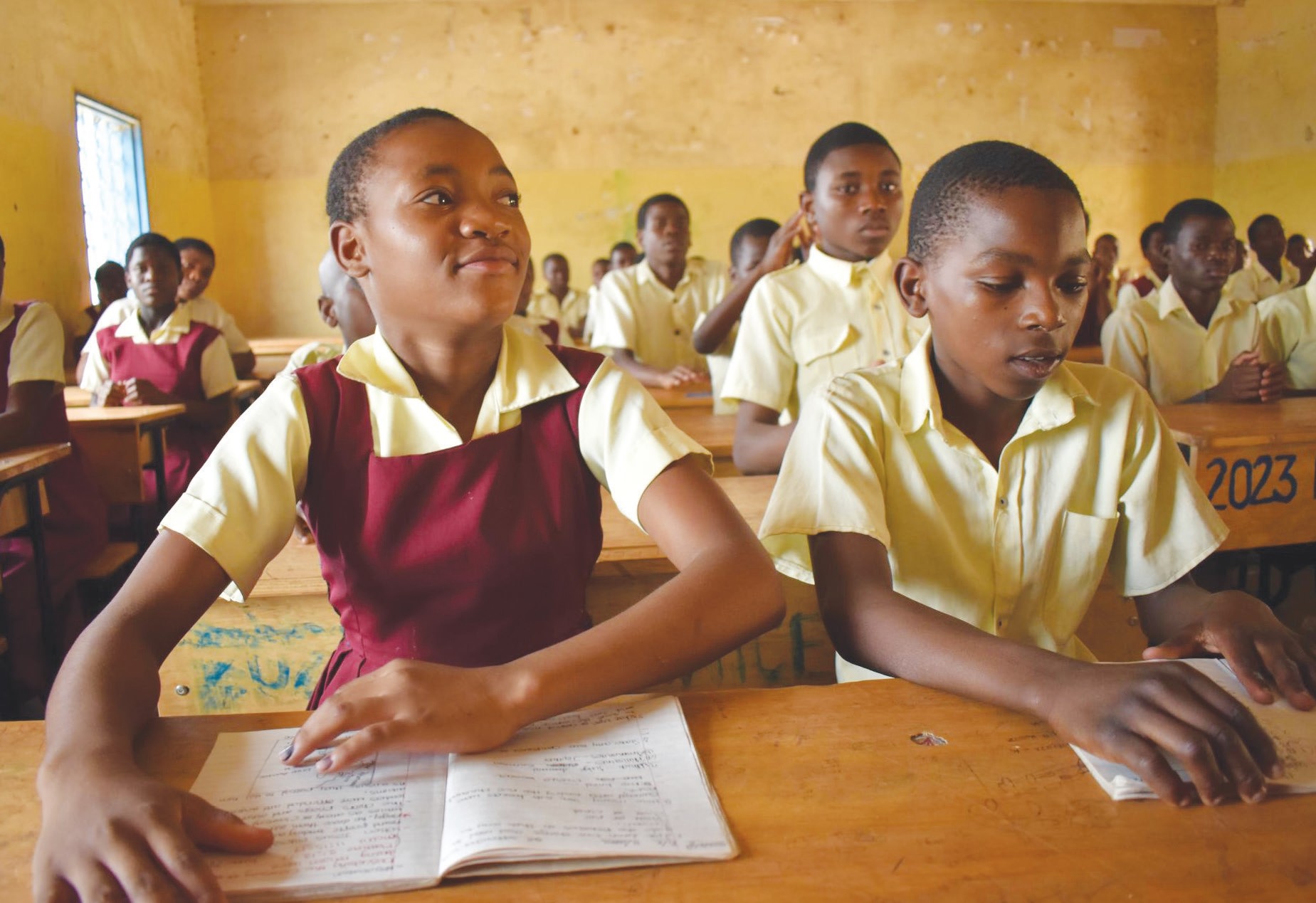Keeping girls in school
For daughters of Malawi’s rural majority, education is a game-changer in their escape from poverty.
Girls like Eftas Mugala, a Form Two learner at Mibanga Day Community Secondary School (CDSS) in Chitipa, envisage education transforming livelihoods and their remote setting.

Their conditions somehow resemble President Lazarus Chakwera’s childhood in the 1960s, when he first experienced the wonders of electricity and safe water when he was selected to Mtendere Secondary School in Dedza.
Yet the likes of Eftas face trickier times.
Many do not go beyond primary education because secondary schools are far apart and lack hostels.
Like Eftas, they often get to class too late and too drained to learn.

The girl selected from Howoka Primary School recounts: “Every girl wishes to learn close to where she lives, but we used to wake up around 3am and walk in the dark to arrive in time for classes at 7am.
“After classes, we were worried of long distances in the thick bushes where some boys and men were waylaying us in the night, agitating to assault us sexually.”
Eftas used to walk over 30km Monday to Friday to get to her nearest secondary school.
“Every step left me sweaty and tearful. Why should a girl suffer like this when she can just stay home and marry like many are doing?” asks the 15-year-old, who aspires to become a journalist.
To reduce the tedious walks, Eftas and her schoolmates rented dilapidated huts in villages surrounding the school.
However, the self-boarding facilities without parental and teacher’s supervision became sex havens, forcing some girls to quit school due to early pregnancies and marriages.
“When a girl lives far from school or on her own, she is prone to risky sexual transactions,” says Eftas.
The girl feels lucky that Maukako, a community-based organisation (CBO) concerned about the plight of women and girls, has constructed a hostel at her school.
“The CBO heard our cry, they approached Action Aid through the district council. Fortunately, our prayer was answered, but there are many schools in the country which have no girls’ hostels. This lowers the number and performance of girls,” she says.
Eftas believes that the push to ensure every girl learns until her dreams come true will remain elusive until girls learn close to where they live.
She urges the government and its partners to ensure every school has facilities girls need to learn in peace.
Minister of Education Agnes NyaLonje concurs that no secondary school is complete without girls’ hostels.
She says the government will continue to work with its partners to support girls to meet their educational goals in safety.
NyaLonje states: “The issue of liberating girls from travelling long distances to schools is multifaceted and needs a whole range of approaches. Fundamentally, it is about allocating more resources for school construction and renovation and ensuring that these funds are used effectively.
“My ministry is in the process of establishing a minimum essential school infrastructure package so that every school has the necessary facilities, including hygiene and toilet facilities as well as accommodation for students where this is appropriate.”
The minister reiterates Malawi’s ambition to reduce the long walks that slow national strides to achieve the global sustainable goals to give every child quality life-long learning.
“Ideally, over time, we should seek to achieve our policy that no child, girl or boy, has to travel more than five kilometre to school. A significant start to this objective is being made through the USAid project to build 250 CDSSs. However, to fully realise this goal, we will need to identify additional resources and make sure that they are used more efficiently than in the past,” she explains.
ActionAid and its partners working in rural areas to lessen schoolgirls’ agony.
Maukako member Judith Munthali says: “We are happy that some of the 100 girls at Mibanga CDSS have safe hostels where they no longer worry about long distances, tiredness, harassment and arriving home late. They sleep in decent rooms and study beyond sunset using solar energy.”
And headteacher John Mumbo expects the hostel to reduce dropout rates, teen pregnancies and child marriages.
“Opened in 2002, Mibanga CDSS covers vast areas and most students walk over 15km to get to class. As a result, girls used to quit in escape from long distances and harassment. Almost seven in every 10 girls could not reach Form Four,” he explains.





